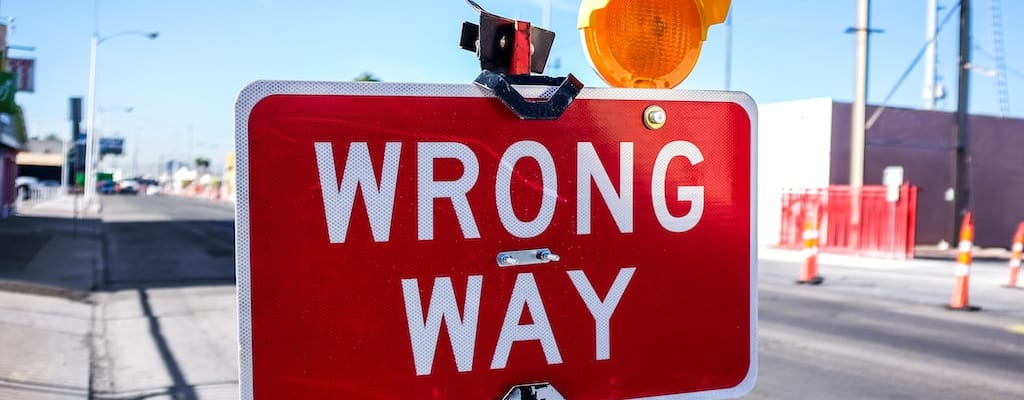wrong number: Idiom Meaning and Origin
What does ‘wrong number’ mean?
An idiom used when someone has dialed an incorrect telephone number. It indicates a mistake or a misunderstanding in communication.

Idiom Explorer
The idiom "ring off the hook" means that a phone is constantly ringing due to a high volume of incoming calls. It is often used to describe a situation where someone is receiving an overwhelming amount of phone calls.
Phone tag is an idiom that refers to a situation where two or more people repeatedly miss each other's phone calls, leading to a back-and-forth exchange of voicemail messages. It implies a frustrating and time-consuming game of "tag" with phone calls.
The idiom *phone in* means to make a telephone call, typically to provide information or participate in a conversation without being physically present.
The idiom "on the horn" means to be talking on the telephone. It is often used to indicate a conversation or discussion taking place over the phone.
The idiom "my bad" is used to apologize for one's mistake or take responsibility for a blunder. It acknowledges personal fault or error in a casual and colloquial manner.
The idiom "my bad" is used in colloquial American English as a way to apologize or acknowledge one's mistake or wrongdoing. Its origin is uncertain, but it has become increasingly popular in modern language, used in personal conversations, informal writing, and even some formal settings.
The idiom "mixed message" refers to a situation where someone is sending conflicting or contradictory information, making it difficult to understand their true intentions or meaning.
The idiom "miss the mark" means to fail to reach a desired goal or objective.
The idiom "mess up" means to make a mistake or to do something incorrectly, often resulting in a negative or chaotic outcome.
Deciphering the Enigma
The idiom "wrong number" is a phrase commonly used in everyday conversations in the United States. It refers to mistakenly referring to someone or something that is not intended, appropriate, or expected in a given situation.
The origins of this idiom can be traced back to the development of the telephone in the late 19th and early 20th centuries. During this time, telephone numbers were assigned to specific individuals or households, and it was important to dial the correct number to connect with the intended recipient.
"Wrong number" became popularized when callers would accidentally dial an incorrect number and reach someone other than the intended person or party. This would often lead to confusion and the realization that a mistake had been made.
Over time, the meaning of "wrong number" expanded beyond literal telephone dialing errors. It began to be used more broadly to describe any situation where someone or something deviates from what is expected or appropriate. For example, if someone shows up at the wrong location for a meeting, it could be described as a "wrong number" situation.
The idiom "wrong number" is widely recognized and understood by native English speakers in the United States. Its usage is not limited to any specific region or demographic, making it easily accessible and relatable.
Additionally, "wrong number" serves as a reminder of the fallibility of human communication and the potential for error in everyday life. It highlights the importance of precision, attention to detail, and understanding of context to ensure effective and accurate communication.
The idiom "wrong number" can be related to the idiom "call up." The phrase "call up" refers to the act of telephoning someone. In the context of "wrong number," if someone accidentally dials an incorrect number and reaches someone they did not intend to call, they are essentially "calling up" the wrong person. This can result in confusion and a mix-up, as the caller and the receiver may not have any prior relationship or connection.
Similarly, the idiom "wrong number" can also be related to the idiom "telephone tag." "Telephone tag" occurs when two or more individuals attempt to contact each other by phone, but are unsuccessful in reaching each other in a timely manner. In the context of "wrong number," if a caller dials an incorrect number and reaches someone other than the intended person, this can lead to a game of "telephone tag" as they attempt to redirect the call to the correct recipient or resolve the confusion.
The idiom "wrong number" captures the essence of unintentional mistakes and deviations from the expected. It originated from the early era of telephone communication but has since expanded to encompass a wider range of contexts. As a commonly used expression in American English, it highlights the inherent challenges of human communication while emphasizing the importance of clarity and accuracy.
Example usage
Examples of how the idiom "wrong number" can be used in a sentence:
- When the phone rang, I answered it but realized it was a wrong number.
- He tried calling his friend, but dialed the wrong number by mistake.
- She received a text message from an unknown sender, and replied with "wrong number".
The idiom "wrong number" is commonly used in situations where someone dials or contacts the incorrect phone number, leading to a miscommunication or unexpected interaction. It can also be used metaphorically to describe a mistaken or misguided action or belief.
More "Mistakes" idioms

